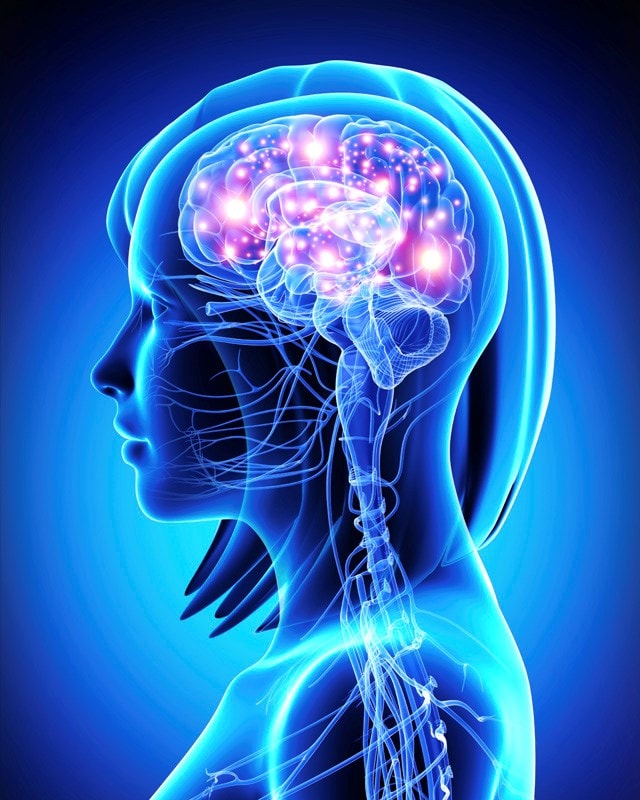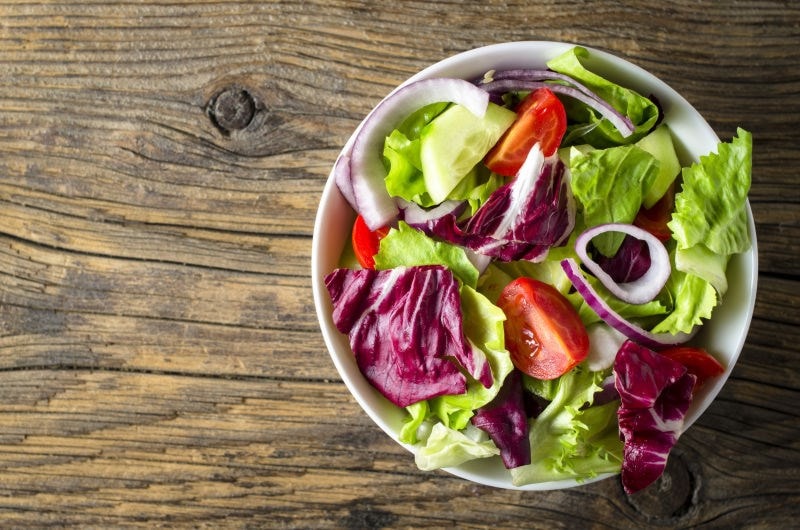Interest in the connection between the gut and mood has been growing over the last few years. It has been found that levels of people’s anxiety may be linked to their microbiome; their gut bacteria. New research from neurobiologists at the Oxford University has now found more compelling evidence between our microbiota (see Probiotics Learning Lab) and brain function. In this particular study the scientists found that there was a strong link between the supplementation of prebiotics and a reduction in anxiety.
Within this article:

The Study
In this study forty five healthy volunteers aged between 18 and 45 were given two prebiotics or a placebo everyday for 3 weeks. The salivary cortisol awakening response was then sampled both before and after the prebiotic/placebo was given. On the final day of treatment, the participants completed computerised tests assessing how they managed to process emotional information such as positive or negative words.
The researchers found that those participants who had taken the prebiotic paid less attention to negative information and more to information that was positive, compared to the placebo group. This is in fact similar to results you would observe among individuals who have taken antidepressants or anti-anxiety medication.
These findings are consistent with previous studies which have linked endocrine and anxiolytic (reduction of anxiety) effects of a healthy microbiome. It was also found that the subjects who took the prebiotics had lower levels of cortisol -- a stress hormone which has been linked with anxiety and depression -- in their saliva when they woke up in the morning.
What could this study mean for us
Prebiotics are a form of non digestable dietary fibre that feeds the healthy bacteria found in our gut helping them multiply faster. Some probiotic supplements contain prebiotics. Fundamentally however, it’s likely the increase in the bacteria itself that is being found to have an effect on our mood and anxiety levels. It is also possible to support your bacteria by eating prebiotic foods and looking after your gastrointestinal health in general - see this article over in the Probiotics Learning Lab.

Another study that was carried out in UCLA’s London School of Medicine on women who were given yoghurt with a mix of probiotics. They found that with these women, taking probiotic in the yoghurt not only had an effect on emotional brain function but also on sensory brain function too. This was viewed on a Magnetic Resonance Imaging scanner.
"Time and time again, we hear from patients that they never felt depressed or anxious until they started experiencing problems with their gut," Dr. Kirsten Tillisch, the study's lead author, said in a statement. "Our study shows that the gut–brain connection is a two-way street."
UCLA’s London School of Medicine researchers are now also planning on running a study to see if alleviation of gastrointestinal issues such as bloating, flatulence and altered bowel habits can have an effect on mood. It is a quite well known phenomena that when you don’t feel well you can often feel low or anxious. Maybe there is a valid link here. Maybe also there is a possibility for a more natural intervention for the growing mental health issues in our country and support with the increase in stress and anxiety in our lives.
Psychobiotics (the idea that bacteria or probiotics can influence our mental health) is a fascinating area which we have already mentioned before. Read Kathy's informative post on psychobiotics over in the Probiotics Learning Lab if you are interested in this area of science.
References
- Kristin Schmidt, Philip J. Cowen, Catherine J. Harmer, George Tzortzis, Steven Errington, Philip W. J. Burnet. Prebiotic intake reduces the waking cortisol response and alters emotional bias in healthy volunteers, Psychopharmacology, DOI: 10.1007/s00213-014-3810-0, published 3 December 2014.Kirsten Tillisch, Jennifer Labus, Lisa Kilpatrick, Zhiguo Jiang, Jean Stains, Bahar Ebrat, Denis Guyonnet, Sophie Legrain-Raspaud, Beatrice Trotin, Bruce Naliboff, Emeran A. Mayer. Consumption of Fermented Milk Product with Probiotic Modulates Brain Activity. Gastroenterology, 2013; DOI:10.1053/j.gastro.2013.02.043
Popular Articles
View all Mental Health articles-
Mental Health06 Nov 2023
-
Mental Health12 Feb 2024


